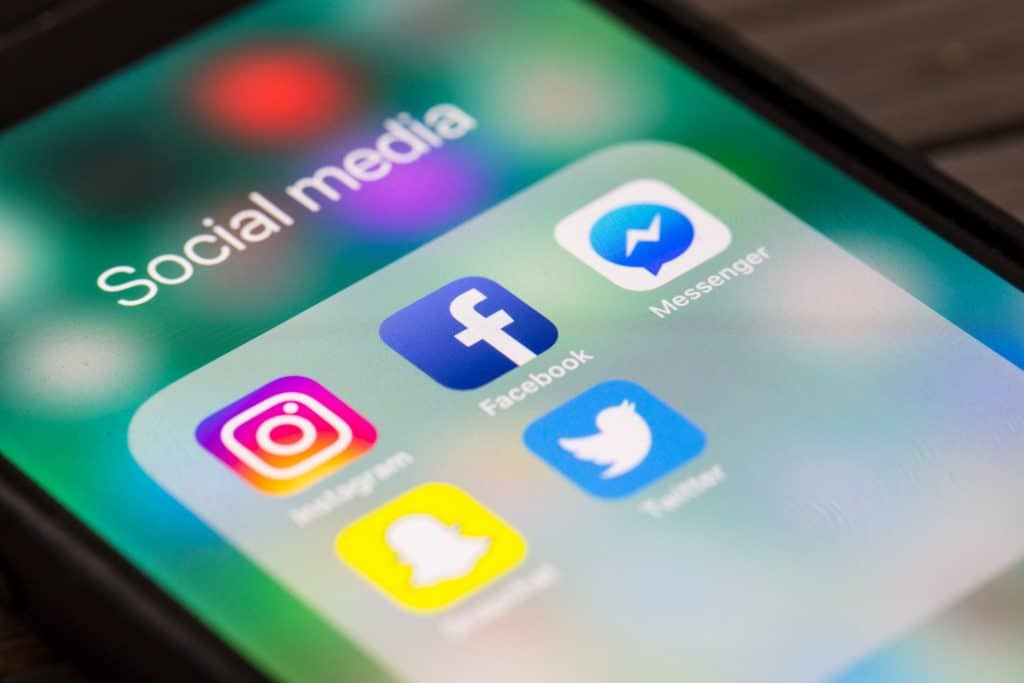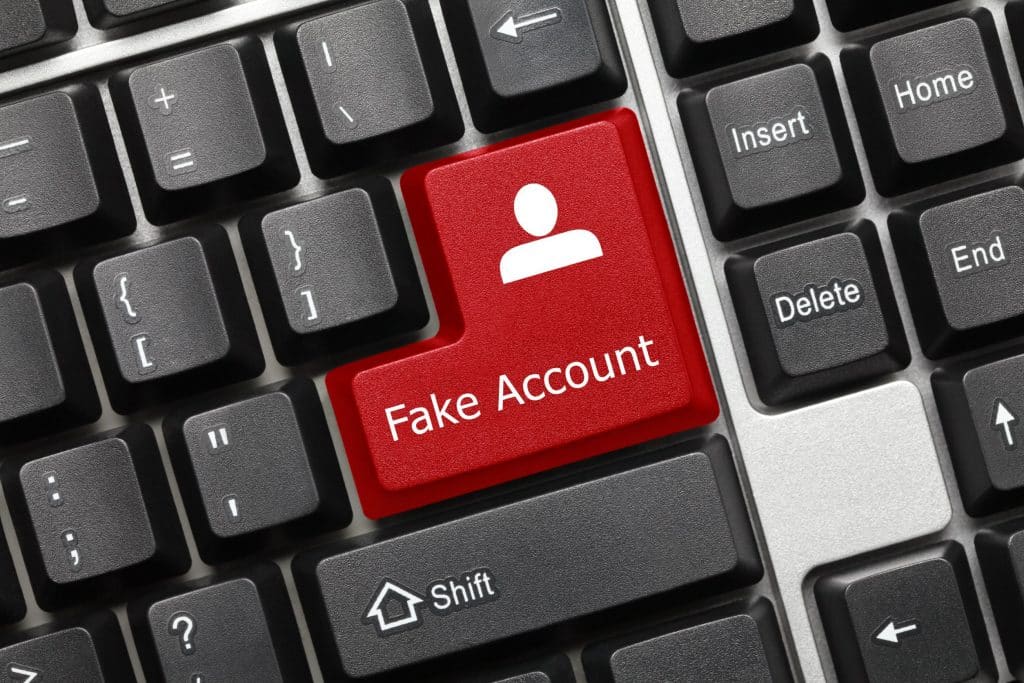Category: Social Media Scams

Social media scams are far too common and can take many different forms. Even the safest social media apps and sites are not invulnerable to the occasional scam, and many scammers are very good at what they do.
In this article, we will look at some common social media scams and share some important social media safety tips.
Social media safety
There are various scams to look out for when browsing social media. Phishing scams are very common and involve trying to get access to your personal information. Some of these scams are quite obvious – for example, you may be contacted by a company saying that you have won a prize or that you are due a refund, and they will ask you to fill in bank details so that they can pay you.
Other scams are more sophisticated, and the message will appear to come from a legitimate company you have dealt with before, a payment processor, or from the app itself. When you click-through the links in these messages, it will take you to a website that may appear to be the one you were expecting, complete with the firm’s official logo, but it may well be a fake or ‘cloned’ website. For this reason, you should never click through links on social media messages unless you know exactly what they are.
Even if the site you land on is not asking for payment details, it could still be a scam. Any free apps or other downloads you are offered could be malware, and even online quizzes may have been designed by scammers to access your data. Be particularly wary of shortened or ‘cloaked’ URLs that hide the actual web address you are visiting. Always go through the main site address to ensure that the URL is the correct one for that organisation.
Another common scam is the impersonation scam, where social media accounts are set up in the name of a celebrity or public figure. If you think you are following a celebrity, you may be tempted to click on any links they post – advertising a competition, for example, or a good cause they suggest you donate to. At best, the money will unlikely get donated to this good cause. At worst, they can use your payment details to hack your bank account, credit card or PayPal.
Many scammers also hack and take over regular accounts to access the people on that person’s friend list, so be wary of any messages from friends that seem out of character. An obvious scam will be a friend or relative asking for money. Always call the person directly and talk to them before helping them out.
More frequently, your ‘friend’ will send you a link, which will turn out to be a phishing link or some other potentially dangerous URL. Sometimes it will allow the scammers to access your details, hack your account, and target your friends and followers.
There are a few important ways to stay safe on social media sites. Keep your own accounts safe by using strong, unique passwords that are not based on any of your personal details and securing any devices you use to access social media. Be careful who you accept as contacts on social media sites and ensure that any public or celebrity accounts you follow are verified and genuine.
Be careful with any personal details you share on social media. Be wary of sharing your contact details and location or posting information that reveals too much about your daily life.
Consider making your accounts private and only accepting invitations to connect with people you know. Make sure that your device is secure, and be particularly careful about using public Wi-Fi, as hackers sometimes target these networks.

Safest social media apps
Here are some of the safest social media apps and some advice on how to make them safer:
- Facebook – Once a Facebook account has been hacked, you will find that scammers tend to use Facebook Messenger to carry out their scams, so be particularly wary of private messages that seem unusual or out of character. Use the Facebook privacy tools to customise your account.
- Instagram – Instagram is ideal for keeping up with celebrities or public figures. It is also a useful networking tool, but you can still do this if you make your account private. Take any personal information out of your Instagram bio if you don’t want it to be visible to the public.
- LinkedIn– This is an app that is commonly used to connect with people in your industry and search for jobs and opportunities, so people are more likely to leave their profile public. You can, however, adjust privacy settings and your sign-in and security settings to keep your account secure.
- Reddit – This app allows for a fair amount of anonymity. It used to have a few security problems, but the platform has recently implemented more advanced security to protect users.
- Telegram – This messaging app is pretty secure and offers the opportunity to use secret chats on multiple devices and prides itself on its fast message delivery. It provides end-to-end encryption, so only you and the person you’re communicating with can see what is sent.
- WhatsApp – This messaging app is known for being particularly secure as it also uses end-to-end encryption. However, scammers have targeted the app, luring users into private WhatsApp groups and conversations, so be aware of that possibility.
- YouTube – YouTube is generally quite safe, but as with any other site or app, you will need to stay alert and secure your account as well as possible.
- Discord– This messaging app uses standard encryption but not end-to-end encryption, so ensure that you use our general tips above to secure your Discord account.
- TikTok– There are various scams that take place on TikTok, but the app itself has all the security features you would expect. Ensure that your account is set up securely and be careful when posting videos that might reveal private information.
- Tinder – Tinder has greatly improved the security of the app itself, but users should be very guarded as dating apps are commonly used by scammers to find vulnerable individuals to defraud.
- Snapchat – This app allows for a certain degree of anonymity and a model where information disappears from the app quite quickly. Be careful with privacy settings, particularly with the Snap Maps feature, which publicly shares your location and could be used by scammers to find out more about your life and whereabouts.
Conclusion
While it is probably impossible to completely avoid social media scams, it is easy to put a few things in place to make it less likely that you will become a victim. Whichever apps you use, ensure that you have strong passwords, tighten up your privacy settings, secure your devices and stay vigilant. Avoid clicking on links in messages where possible, and if something seems suspicious or even just unusual, assume that it is some kind of scam until you can prove otherwise.
Latest News
How to Avoid Dating Scams on Facebook, WhatsApp and Instagram
Published:Young People Targeted by Instagram Scams. That Means You Too!
Published:How to Avoid Forex Trading Scams on Tinder
Published:The Safest Forex Discord Servers
Published:How to Avoid Forex Trading Scams on Snapchat
Published:How to Avoid Forex Trading Scams on LinkedIn
Published:How to Avoid Forex Trading Scams on TikTok
Published:How to Avoid Forex Scams on Telegram
Published:How to Avoid Forex Trading Scams on Facebook
Published:Forex Fraud Certified Brokers
Stay up to date with the latest Forex scam alerts
Sign up to receive our up-to-date broker reviews, new fraud warnings and special offers direct to your inbox

